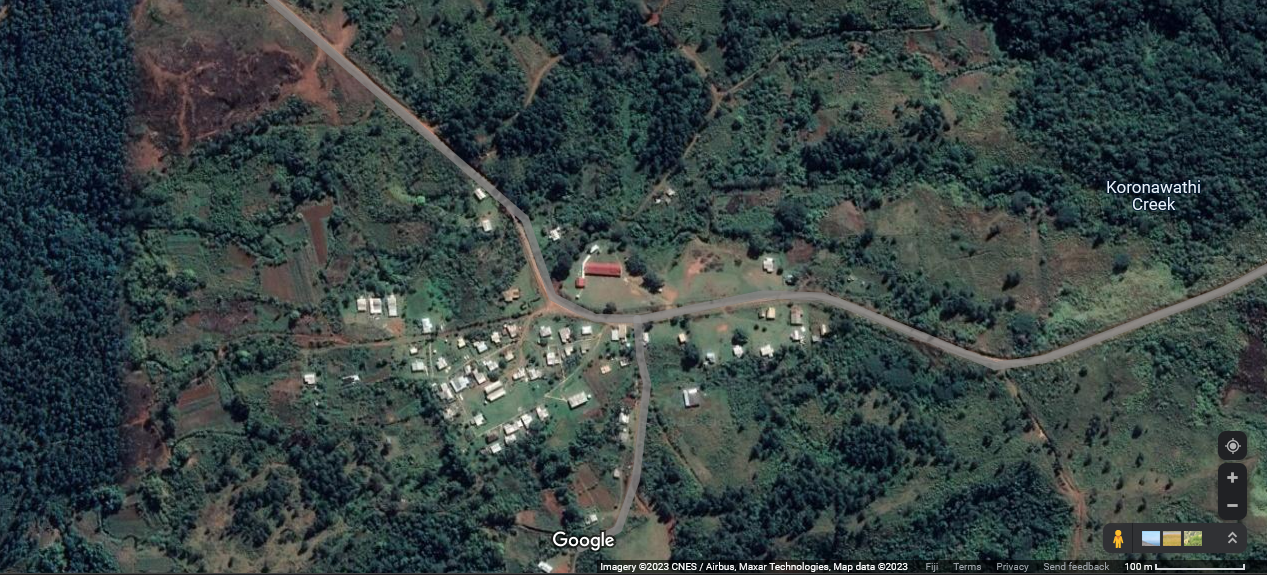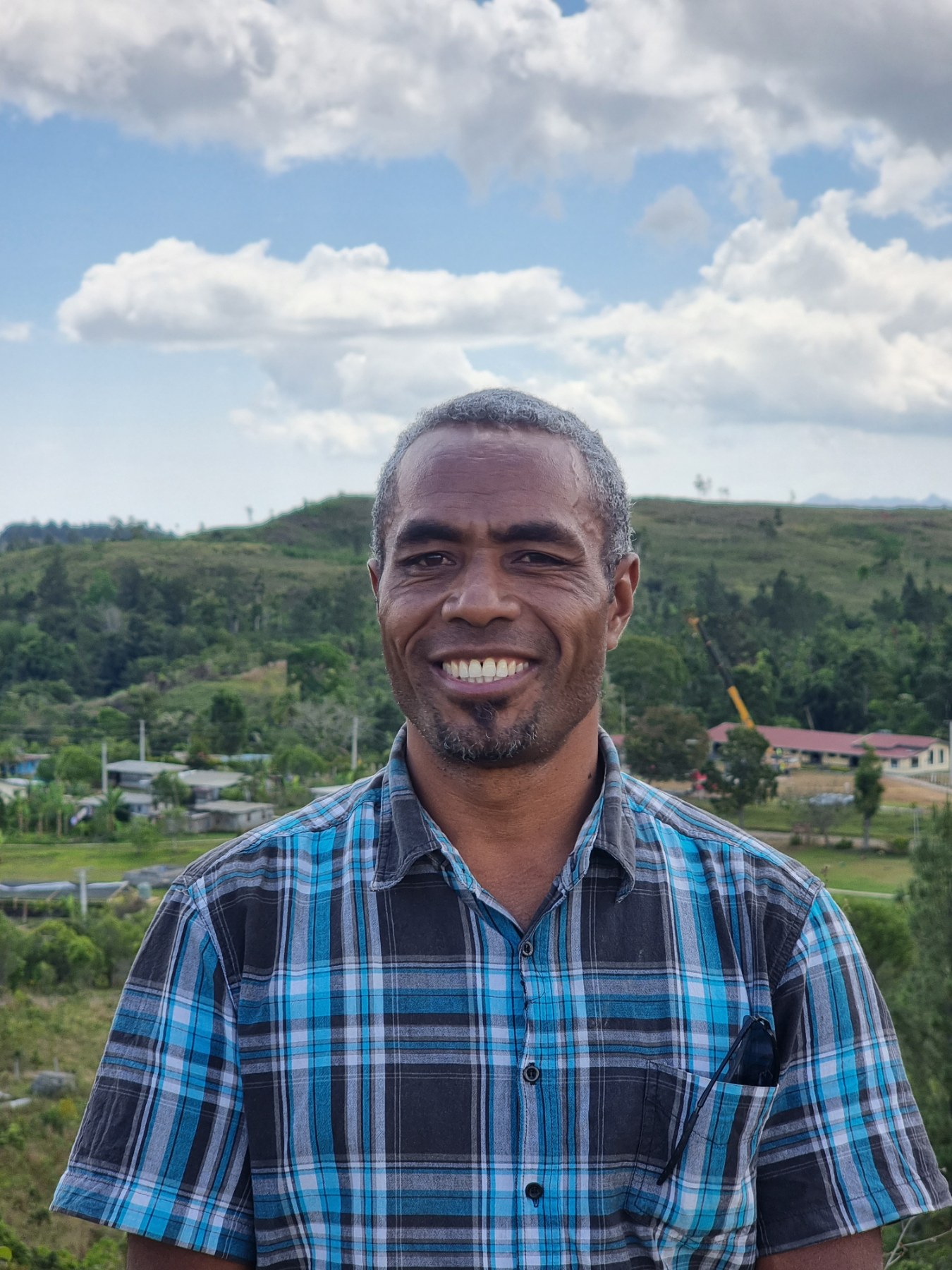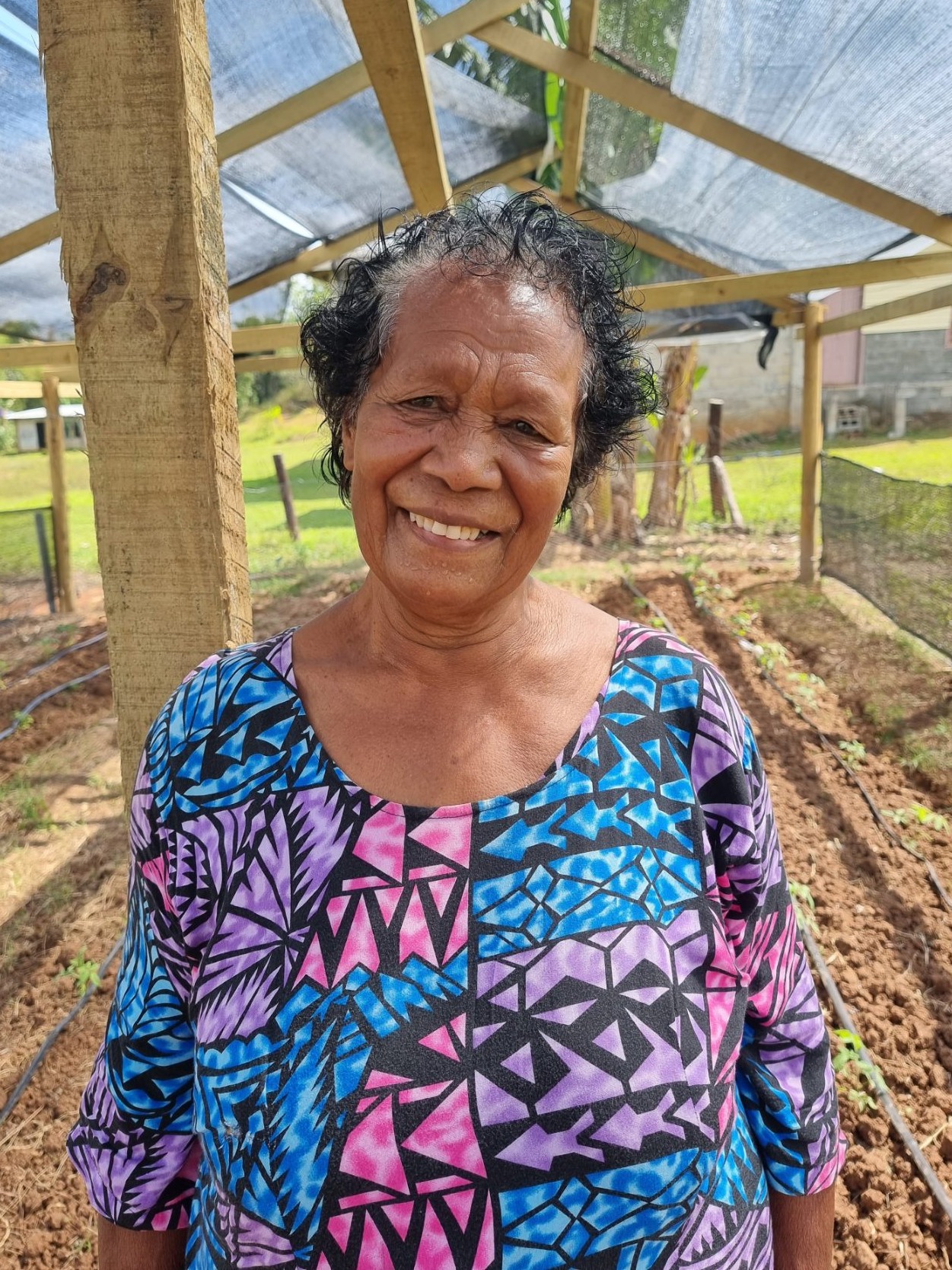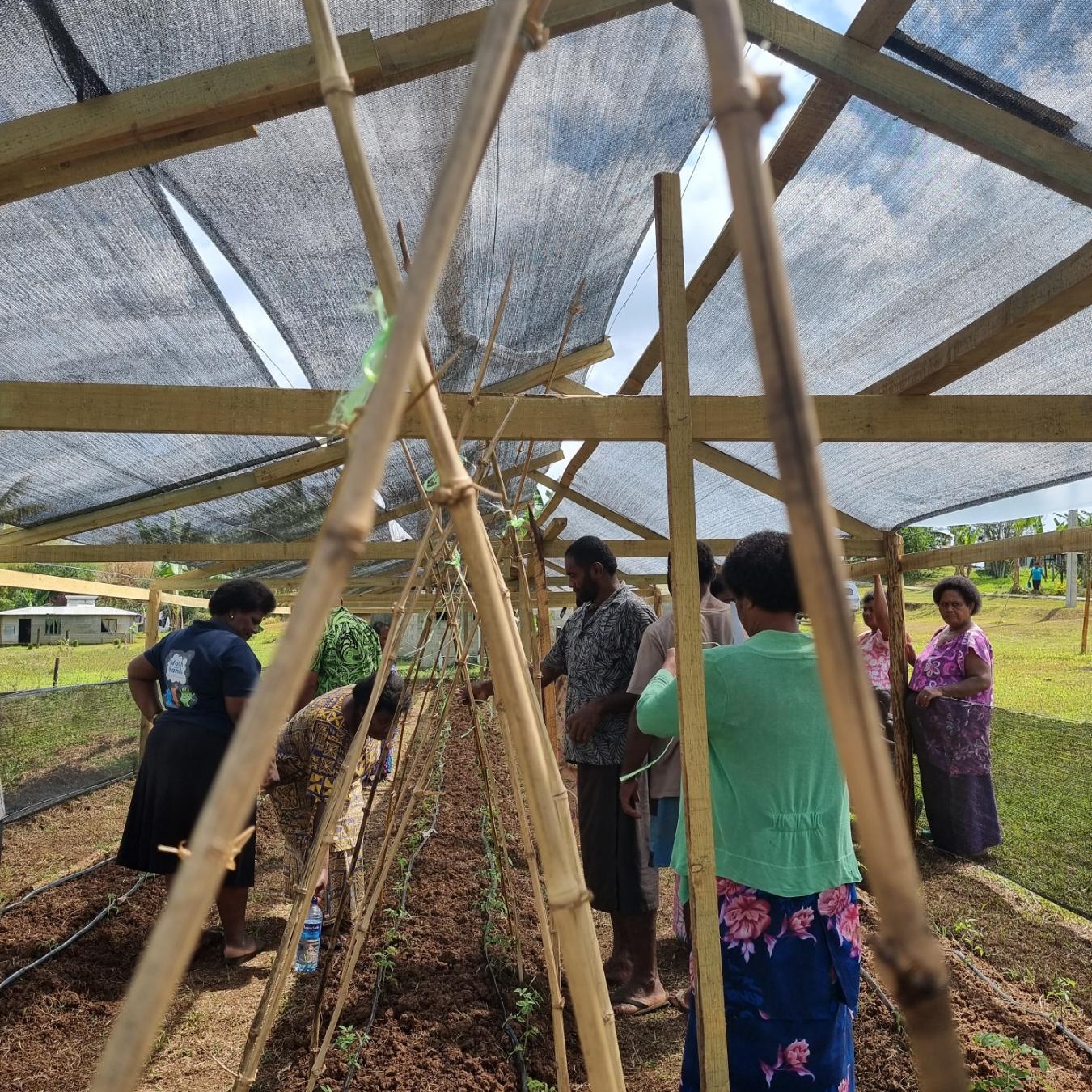Crop protection systems for high quality vegetable production
January 27, 2023

Nausori highland village.
Nausori highland village is in the interior of Viti Levu, on the border of Nadroga/Navosa and Ba provinces. The village has a population of over 300 people, and their main source of income is farming, which they supply to municipal markets in Nadi, Lautoka and Ba, as well as pine/mahogany logging.
However, because of the recent weather changes, one of their challenges was access to fresh produce.

A protective cropping structure in Nausori highland.
A protective cropping training led by the Markets for Change project (M4C) will address most farmers’ and market vendors’ concerns about the importance of protecting their root crops and farm produce from changing weather patterns in Fiji.
Following the effects of COVID-19, which resulted in job losses, border closures, and food security concerns, there is also a strong emphasis on assisting farmers and market vendors in developing alternative livelihoods.

An aerial image of Nausori Highland village on the border of Nadroga/Navosa and Ba province.
Village headman, Epeli Vamosi said there hasn’t been any agricultural trainings for farmers in the village for a few years now and the UN Development Programme’s support at a critical time was welcomed. “I would like to thank UNDP for providing this support to my village and the people because this will really benefit us.”
The capacity building training focuses on increasing the capacity of Fijian farmers to produce high quality vegetables in protected cropping systems. It will also focus on the development of value chains to connect farmers using these systems to high value markets for fresh vegetables.
Mr. Vamosi said they will make use of the land that are yet to be used. “I am confident that we will be able to supply vegetables to homes and village functions. We always have a shortage in bele, cabbage, tomatoes but now we will be able to feed the village, because if it wasn’t for this training, we would always end up in towns to buy vegetables.

Nausori highland village headman Epeli Vamosi.

Participants practicing new farming practices.
Reijieli Tawase from Moala Island in Lau said she had little to no knowledge on farming having moved to the village with her husband three decades ago. Ms. Tawase has always been supportive of her husband, who recently retired from the military, so she started a canteen business, baked birthday cakes, and even operated a tailoring business. Life was not easy for the mother of seven.
She said, “My husband and I had a similar shed before this protective cropping training was brought to the village, but it was open and this shed was for my sandalwood plants, as this was another source of income for us.”
She added “We had to look for ways to ensure the plants survived with the right manure before it was sold but following this training, my son and I will continue to practice what we’ve learnt.”

Business entrepreneur Reijieli Tawase at Nausori highland village.

Reijieli Tawase with her set of yasi plants.
The oldest participant, 77-year-old Mere Salele, emphasized that this was her first time attending a capacity building training on agriculture, particularly one that is concentrated on protective cropping training. "It's never too late to learn something new," she said.
Ms Salele has been living on her own since her husbands passing in 2000 and only knew about traditional farming skills, however, with the introduction to protective cropping farming, this has challenged her to accept and learn new farming methods. “This training is different to what we have been taught with, its different from what our elders passed down to the younger generation and this form of training is very quick and easy and for my old age this is all new to me.”
She added, “My advice to the rest of the participants and the members of this village is to continue to advice and monitor their farms because this will benefit them. Being one of the elders in the village, I will make sure that this training, skills, and learnings is passed down to the younger generation.”

77-year-old Mere Salele.

Mere Salele inside the Greenhouse shed monitoring the progress of the vegetables.
UNDP’s Deputy Team Leader for the Inclusive Growth Programme, Patrick Tuimalealiifano said, “The training focuses on increasing the capacity of Fijian farmers to be able continue to produce quality vegetables during disruptive climactic conditions such as cyclones and drought.”
He added, “The training supports vulnerable communities to accelerate progress on the Global Sustainable Development Goal 2 on Zero Hunger and Goal 8 on Decent Work and Economic Growth”.

UNDP collaborated with Fiji's Ministry of Agriculture to conduct the protective cropping training.

Participants undergoing a practical exercise under the protective cropping structure.
According to the findings of the Pacific Community (SPC) project on Protected Cropping Systems, funded by Australian Centre for International Agricultural Research, vegetable production in the Pacific Islands currently does not match local demand, with vegetable imports supplying high value hospitality and food service markets.
If local producers met this demand, income from high-value vegetable production would improve the producers' and their communities' livelihoods. Protected cropping for small and medium-scale farmers has the potential to be a transformative and enabling technology for Pacific Island vegetable production systems, potentially filling the import gap.
The Markets for Change project promotes gender equality through the economic empowerment of women market vendors in Fiji, Samoa, Solomon Islands and Vanuatu. It brings together governments, market vendors and market vendor associations (MVAs), civil society organizations and UN agencies.
The M4C is implemented by UN Women in partnership with UNDP and the Governments of Australia, Canada, and New Zealand.
For more information, please contact:
Akosita Talei, Communications and Research Officer, Inclusive Growth Programme, UNDP Pacific, akosita.ratumaimuri@undp.org

 Locations
Locations


